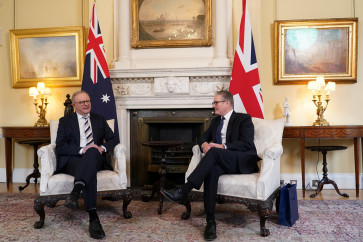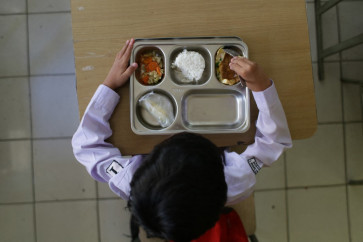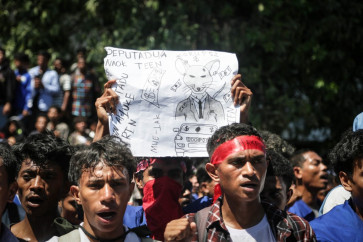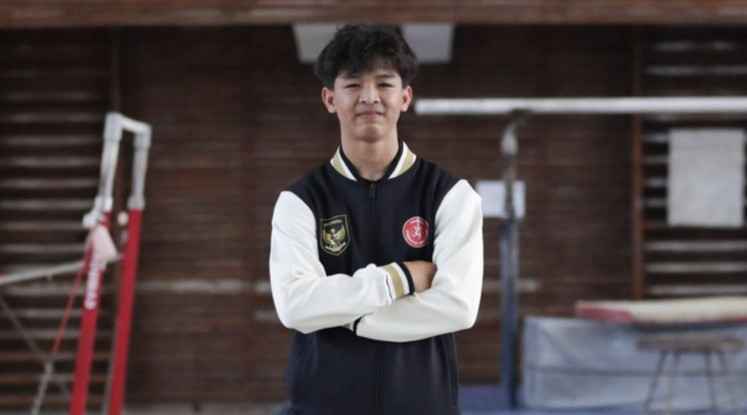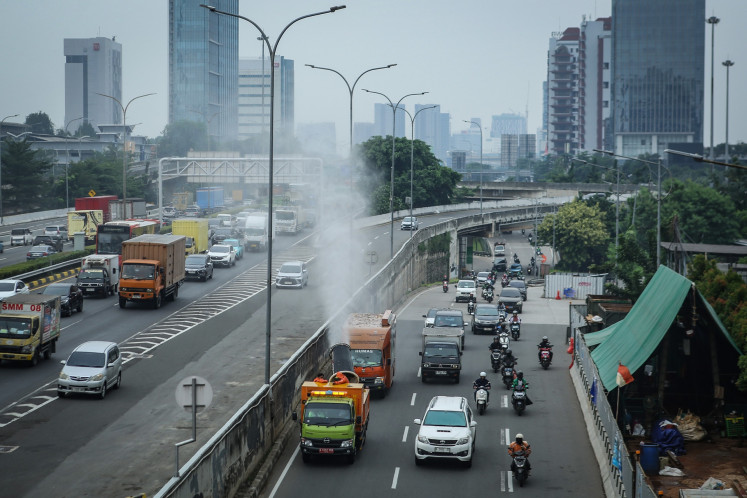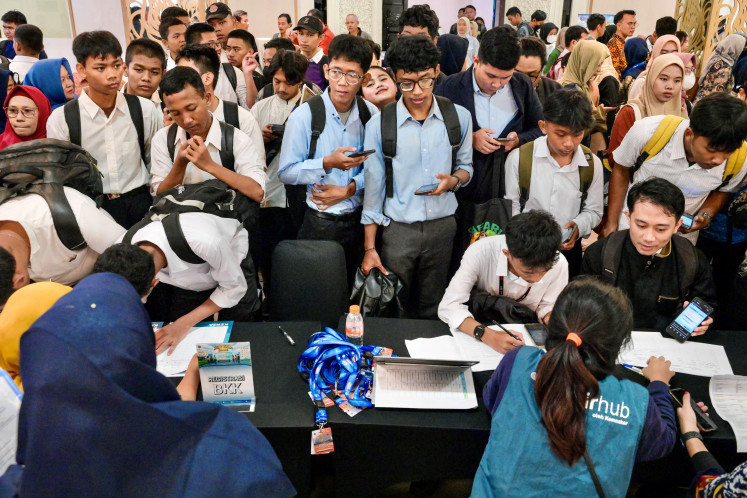Popular Reads
Top Results
Can't find what you're looking for?
View all search resultsPopular Reads
Top Results
Can't find what you're looking for?
View all search resultsIswanto: Turning waste into wealth
(JP/Simon Sudarman)A village cluttered with household rubbish has become a model of a clean environment, thanks to the ingenuity of a local intellectual determined to change the squalid conditions in Sukunan, Banyuraden, Gamping district, Sleman regency, Yogyakarta
Change text size
Gift Premium Articles
to Anyone
(JP/Simon Sudarman)
A village cluttered with household rubbish has become a model of a clean environment, thanks to the ingenuity of a local intellectual determined to change the squalid conditions in Sukunan, Banyuraden, Gamping district, Sleman regency, Yogyakarta.
He is Iswanto, a biology graduate of Yogyakarta State University and lecturer of environment hygiene from Gunungkidul, Yogyakarta. He has been a resident of Sukunan village since 1997.
'Our village is on the fringes of the regency so it's beyond the reach of garbage collectors. The heaps of refuse everywhere once posed social, economic and health problems to local people,' said Wanto, the pet name of the man now studying at Yogyakarta's Gadjah Mada University for a doctorate.
In order to initiate his waste management project, he first had to demonstrate how his family utilized rubbish for various purposes, even profitably. 'Villagers needed proof rather than mere advice. Only after witnessing what we had produced and innovated were they ready to discuss it,' said the father of two.
Wanto, 43, with the support of his wife Endah Suwarni Setiyawati, 42, a bank employee, began with managing household waste. 'None of the refuse at our home is wasted. We turn garbage into compost, trash into handicrafts, rainwater into bath water, and urine into fertilizer. We also created a water heater through the heat of a burning stove,' he revealed.
The village environment rescue drive initiated by Wanto and his family has made their house an experimental laboratory for Sukunan residents to learn the skills of waste management and utilization for further practice at home.
Originally, Wanto conveyed his idea to the village patrol group and only four members were interested. He then invited more residents to his house to observe what his family had achieved and offered instruction. As a result, in early 2004 local people formed the Sukunan Waste Management Team.
When Wanto mentioned the team's plan of operation to a peer from Australia, Dr. Lea Jellinec, he received a contribution of Rp 5 million for the pro-environment effort, which was spent on the purchase of waste processing equipment.
'Villagers also agreed to make rules on what they are required to do and must avoid after receiving guidance on waste handling and utilization,' said Wanto, who briefly underwent training on environment management at Monash University, Australia, in 2005.
Among the rules are the prohibition on burning garbage and using Styrofoam containers, the obligation to handle one's own waste by separating organic rubbish from inorganic trash and to process organic waste into compost.
'Later, the rules also required the use of diapers and sanitary napkins made from natural materials instead of disposable ones,' said Wanto, showing local products with two-year durability under the brand Sukuno.
With their change in behavior to become environmentally conscious, Sukunan residents, who are mostly farm and construction workers, are daily engaged in processing waste into compost, plastic handicrafts, Styrofoam bricks and various other products, thus increasing their income.
'Their plastic handicrafts like backpacks, laptop bags and doormats have since 2004 been exported to Australia, France, America, Japan and other European countries, while their compost is used by the village and nearby communities,' Wanto pointed out.
The success in waste management and neighborhood enhancement led to Sukunan's promotion in status as an environmental tourist village in 2008. A practically neglected area in the beginning, today Sukunan is visited by no fewer than 500 domestic and foreign tourists.
Those coming from Malaysia, Japan, the US, Holland and France, for instance, while attracted by the village's waste utilization, are also eager to know how the community has become environmentally oriented. The growing number of visitors also boosts local businesses like food stalls, homestays, as well as compost-making instruction and tourist guide services.
'Some of our instructors are frequently invited to various regions for waste processing demos. At the college level, I usually give theoretical explanations to campus people,' said the recipient of awards for the Best Practice in Waste Management in Indonesia and the National Recycling Program of 2004 from the Environment and Women's Empowerment ministries.
As a tourist village, Sukunan and its products created from recycled waste have become well-known in different parts of Indonesia. Unsurprisingly, all of its innovations, including sanitary napkins, are sold in regions in and beyond Java.
'I only want to make people realize that nature actually gives us blessings instead of waste, as long as we're prepared to be friendly to it. We should smartly adopt the right strategy to make the best of it,' said Wanto, chairman of Yogyakarta's Merti Boemi Lestari, or Independent Waste Management Network.
His other environmentally friendly products include low-energy showers, mosquito egg traps and natural refrigeration for fruit and vegetables. 'We're striving to be always innovative in waste management so that all our creations are competitive and marketable, as many products of similar types are beginning to rival ours,' added Wanto.


